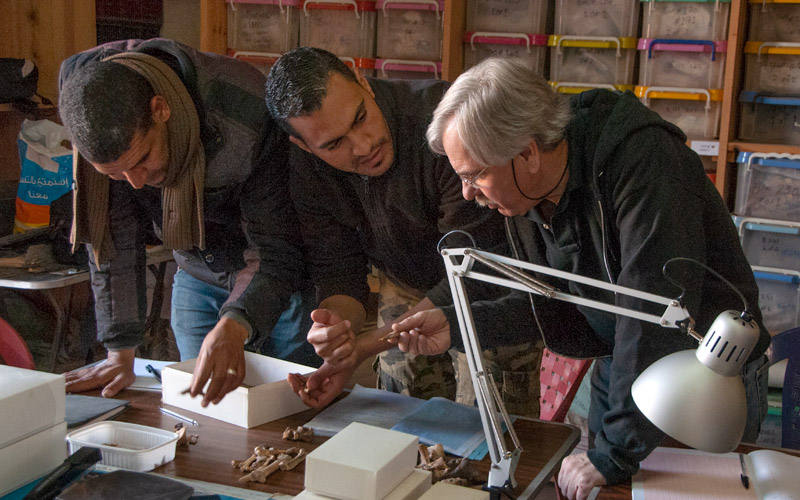Dr. Richard Redding
Richard Redding is a Research Scientist at the Kelsey Museum, University of Michigan, as well as, a principle investigator in Archaeological Projects in North Africa, the Middle East, and Asia. He is also the Chief Research Officer (CRO) of the Ancient Egyptian Research Associates.
Dr. Redding received his Bachelors, Masters and bi-departmental PhDs at the University of Michigan (1981). His doctorate was bi-departmental in both Anthropological Archaeology and Biological Sciences. He has taught at Hamilton College, Wellesley College and Oakland University. Dr. Redding was also the Director of Science at Cranbrook Institute of Science (1986-1991) before returning to the University of Michigan in 1993.

Richard Redding is a Research Scientist at the Kelsey Museum, University of Michigan, as well as, a principle investigator in Archaeological Projects in North Africa, the Middle East, and Asia. He is also the Chief Research Officer (CRO) of the Ancient Egyptian Research Associates.
Dr. Redding received his Bachelors, Masters and bi-departmental PhDs at the University of Michigan (1981). His doctorate was bi-departmental in both Anthropological Archaeology and Biological Sciences. He has taught at Hamilton College, Wellesley College and Oakland University. Dr. Redding was also the Director of Science at Cranbrook Institute of Science (1986-1991) before returning to the University of Michigan in 1993.
Dr. Redding’s investigations, excavations, and surveys have taken him all over the world seeking an understanding of the origin of food production and the evolution of complex societies. He has excavated in Iran, Iraq, Turkey, Kenya, Tanzania, Egypt, Armenia, Georgia, China, Israel, Mexico, Wyoming and Michigan. As an educator, he is deeply committed to teaching young archaeologists and students in the US, China, and Egypt. Recent teaching has focused on Complexity Theory in Archaeology, Pastoralism and Archaeozoology, which is his specialty.
Dr. Redding publishes articles and reviews annually. His works appear in multiple books, journals, and scientific magazines. His most recent manuscript submitted is titled, “The Pig and the Chicken: the Introduction of the Chicken in the Middle East and its Relation to the Evolution of the Human Prohibition on Pig Consumption.” Other recent articles published are results of his work at the Pyramids at Giza and the Giza Mapping Project. Other recent works catalog his work in Iran, Turkey, China, Greece, and Anatolia.
Dr. Redding first worked in Egypt in 1981 in the Fayyum Depression. He has also worked in the Eastern Desert of Egypt, Luxor, the Nile Delta and Giza. He was co-director in 1984, 1986 and 1988 at the Old Kingdom site of Kom el-Hisn, a village in the Nile Delta. Since 1989, Dr. Redding has been involved in excavations at the Lost City of the Pyramid Builders. He has spent every winter in Egypt since 1997.
Dr. Redding is on the Board of Directors of the Ancient Egypt Research Associates (AERA), the Managing Board of the Wiener Laboratory at the American School of Classical Studies in Athens, and a member of the International Committee of the International Council for Archaeozoology (ICAZ).
Dr. Redding, an avid bicyclist, lives with his wife, Cheri Alexander, in Ann Arbor, where she is also on staff and teaches at the Ross Business School. They have one daughter at Harvard.
For more information about Dr. Redding, please visit richardredding.com.
